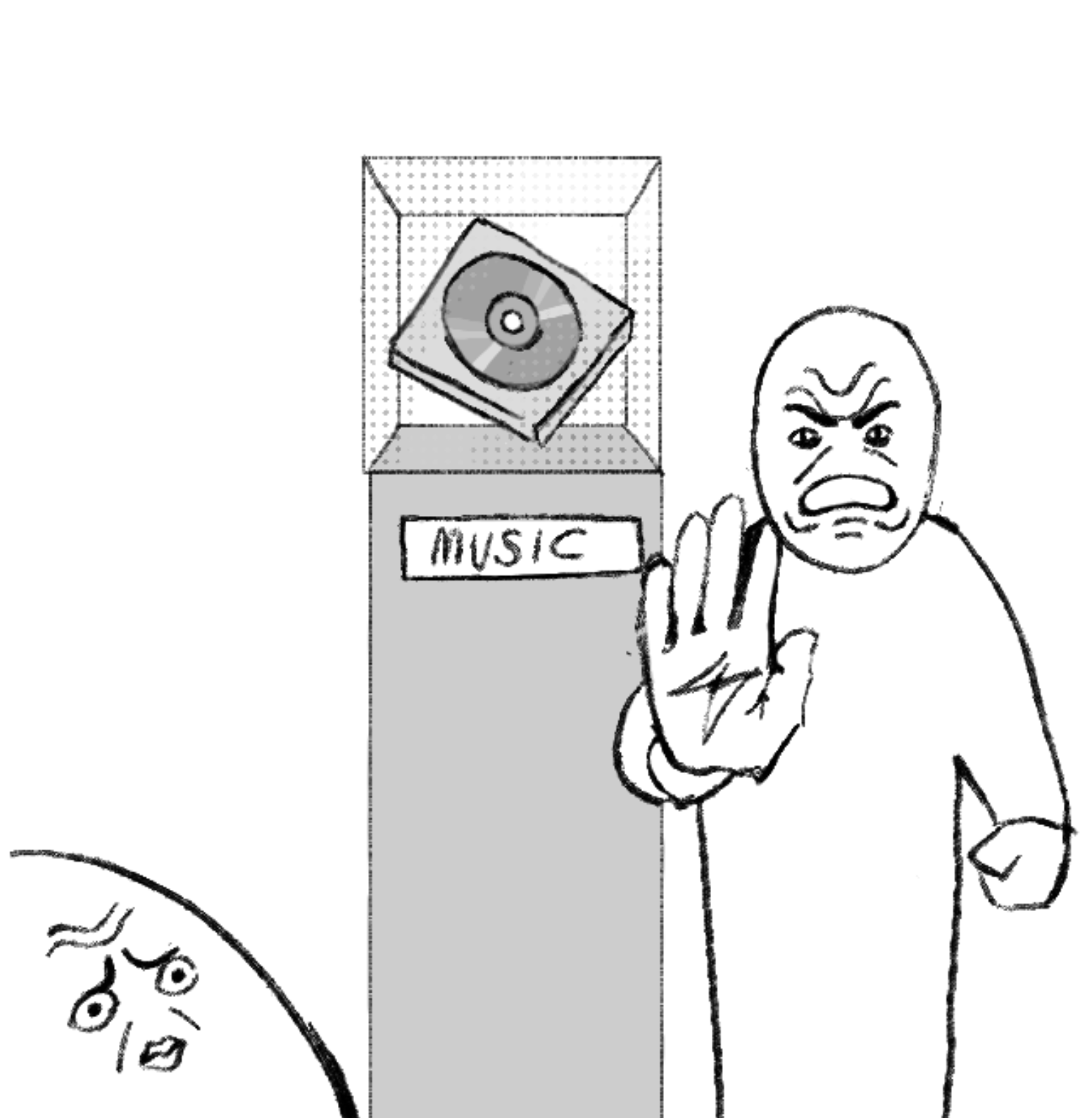There are a variety of ways we choose to express ourselves. Whether it’s the way we dress, our hobbies or even the way we talk. But one of the biggest has to be music.
For better or for worse, music is a very important part of a lot of people’s identities. Which is why the music opinions of the people around us seem to matter way more than they really should. So what if someone isn’t a fan of your favorite artist? It’s important to respect the music tastes of other people, even if you might not agree with them.
But just like with any community, there are always those few elitists who think that their word is law. And while musical elitism comes in many different forms, music gatekeeping is probably the most common and continues to increase in music-based circles.
Gatekeeping is usually defined as “the action of controlling who gets certain resources, power or opportunities and who does not”. Music Gatekeeping is when this idea is applied to music genres and artists.
What exactly leads people to gatekeep music? The answer… is very complicated, but it usually boils down to two factors: fear of the mainstream and the desire to be special.
In the wider discussion of music, you will hear the popularity versus obscurity debate a lot. Does music lose value when it becomes more known by the general public compared to when it’s enjoyed by a smaller fanbase? I personally don’t think so, but to each their own.
A major reason people choose to gatekeep music is to protect an artist or a genre of music from “the mainstream”. Because god forbid that a talented artist actually gets paid for what they do.
In many communities, “the mainstream”, which is just a catch-all term to describe the popular music industry, has been criticized for its lack of original sound for the sake of marketability. However, major record labels also have a history of having much more money to throw at artists compared to more independent, creative spaces. Don’t get me wrong, artistic integrity is respectable, but you can’t eat clever lyrics or pay the rent with experimental guitar riffs.
This is why supporting indie artists is so important, so they can have the means to continue producing the art they want at the quality they want without sacrificing their creative standards. So when you gatekeep music, you turn away potential fans from supporting your favorite artist, meaning that you’re actually taking away revenue from the artists you’re trying to protect.
Another reason people tend to gatekeep music is because knowing a more obscure artist makes them feel special. There is nothing wrong about wanting to feel special. Sometimes you just need to believe that, in some way, you’re a cut above everyone else simply because you are you. It’s almost a necessary part of the human experience because, let’s be honest, this world is very good at making you feel like nothing.
Those who gatekeep music have a tendency to believe that the more people who come to know and like an artist or band, the less special their music becomes. So when someone else shows interest in that artist, especially if that person is deemed as “unworthy” of being a fan, there is a very knee-jerk reaction to act as antagonizing as possible towards them in order to keep that artist’s music as personal as possible.
This is a very close-minded way to look at music. Sure, it’s normal to have music that is very personal to you, but that doesn’t mean it can’t be personal to anyone else. A bigger fanbase doesn’t reduce the specialness of music, it makes it so that more people can appreciate the artists you love.
The subjectivity of music is a double edged sword. It allows so many unique sounds to exist at once, but musical elitists are going to spend the rest of their lives arguing over what music is better and we just kind of have to roll our eyes and deal with it.
Thankfully, the quiet majority of music-lovers are exactly that: fans of music who may not always agree with each other, but have the common courtesy to respect each others’ opinions.






